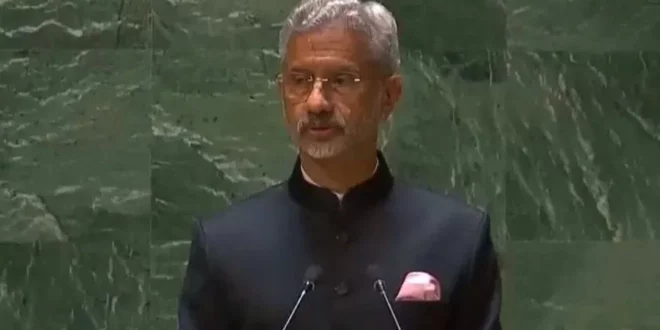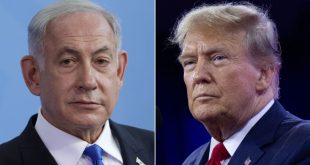United Nations. India on Tuesday called on UN member states not to let ‘political convenience’ come in the way of deciding their response to terrorism, extremism and violence. This statement appears to be an indirect attack on Canada amid the ongoing diplomatic standoff over the killing of a Khalistani separatist.(of terrorism)
While addressing the 78th session of the United Nations General Assembly here, External Affairs Minister S Jaishankar also said that respect for territorial integrity and interference in internal affairs cannot be exercised selectively. He said that gone are the days when some nations set the agenda and expected others to accept their views.
The Foreign Minister said, “We should not allow injustice like vaccine discrimination to happen again. Climate action also cannot continue by shirking historical responsibilities. “Market power should not be used to take food and energy out of the hands of the needy and into the hands of the wealthy.”
He said, “Nor should we let political convenience dictate the response to terrorism, extremism and violence. “Respect for territorial integrity and non-interference in internal affairs cannot be exercised selectively.”
He was indirectly referring to America, which had allegedly provided intelligence to Canada after the killing of Sikh separatist Hardeep Singh Nijjar. Jaishankar’s comments regarding political convenience appear to be in the context of Canada, whose Prime Minister Justin Trudeau recently alleged the ‘possible’ involvement of Indian agents in the killing of a Khalistani extremist leader in his country. India had termed his statement as ‘nonsense’ and ‘politically motivated’.
Foreign Ministry spokesperson Arinder Bagchi had said last week, “They (Canadians) have made allegations. “It appears to us that these allegations by the Government of Canada are primarily politically motivated.” There is a Sikh population of 770,000 in Canada, which is two percent of the total population of the country. Sikhs are considered an important vote bank there.
Jaishankar said in his address, “In our discussions, we often advocate promoting the rules-based system. From time to time the issue of respect for the United Nations Charter is also raised. But for all these discussions, there are still some countries that set the agenda and define the rules. This cannot go on indefinitely. It is not that it cannot be challenged.”
Jaishankar said, “Once we all put our minds to this, a fair, equal and democratic system will definitely emerge.” He said, “India tries to promote cooperation with diverse partners when we encourage collective efforts. Moving ahead from the era of non-alignment, we have developed the concept of Vishwamitra. “This is reflected in our ability and willingness to dialogue and partner with a wide variety of countries.” He said this while mentioning the rapid development of organizations like Quad and BRICS.
Jaishankar said, “All countries pursue their national interest. In India we did not see it as against global welfare. When we move forward with the aspiration of becoming a leading power, it is not self-aggrandizement but taking more responsibility and contributing.” Jaishankar said that the world is going through an extraordinary period of turmoil. He said that it is with a sense of extraordinary responsibility that India assumed the presidency of G20. India’s vision of ‘One Earth, One Family, One Future’ seeks to focus on the core concerns of many nations and not just on the narrow interests of a few countries, he said.
 Indian Thought Latest News & Views
Indian Thought Latest News & Views



